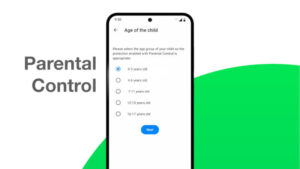In a somewhat surprising move, HP has announced they are dropping all devices running WebOS. The announcement came in a terse two sentences included in a press release issued today on Business Wire:
“In addition, HP reported that it plans to announce that it will discontinue operations for webOS devices, specifically the TouchPad and webOS phones. HP will continue to explore options to optimize the value of webOS software going forward.”
This announcement caught many off guard. The PR folks at HP have been busy extolling the virtues of the mobile operating system, which became their property when they acquired Palm last year for about $1.2 billion. In the April, 2010 press release that announced the Palm acquisition, a HP executive vice president saw a great future for HP and WebOS:
“’Palm’s innovative operating system provides an ideal platform to expand HP’s mobility strategy and create a unique HP experience spanning multiple mobile connected devices,’ said Todd Bradley, executive vice president, Personal Systems Group, HP. ‘And, Palm possesses significant IP assets and has a highly skilled team. The smartphone market is large, profitable and rapidly growing, and companies that can provide an integrated device and experience command a higher share. Advances in mobility are offering significant opportunities, and HP intends to be a leader in this market.’”
In recent months HP officials have issued a number of statements indicating they were fully committed to the continued development and implementation of the OS. This past March, HP CEO Leo Apotheker told Bloomberg that by 2012 the OS would be installed on every HP PC:
“Apotheker says he also wants to make better use of WebOS, the computer-operating system acquired last year when Hewlett- Packard purchased smartphone maker Palm Inc. for $1.2 billion. Starting next year, every one of the PCs shipped by HP will include the ability to run WebOS in addition to Microsoft Corp.’s Windows, Apotheker said.”
Just this Tuesday, WebOS head Stephen DeWitt told the Wall Street Journal that companies had expressed great interest in embedding the OS in everything from cars to appliances. The same day, however, Don Reisinger reported on CNET that the folks at HP might be overly optimistic:
“The chances of HP finding friends in the car business, however, seem slim, an analyst speaking to the Journal said. According to Thilo Koslowski, carmakers are unlikely to invest in a new technology, since most of them already have services in place.
‘The automobile industry has no interest in changing suppliers every year,’ Koslowski told the Journal.
“It could be a similar scenario on the appliance side. Whirlpool, which makes a host of appliances under several names, including Maytag and KitchenAid, told the Journal that it won’t be integrating WebOS for one key reason: appliances are designed to last a long time, and WebOS might not be able to hold up over that period.”
In July of this year, TouchPad, HP’s anticipated iPad killer, went on sale featuring a version of WebOS especially configured for tablet use. It was met with a response that was underwhelming. Indeed, even before the first TouchPad hit the shelves, the device was proclaimed a failure in the media, with ZDNet’s Jason Perlow calling it “Dead on Arrival” in a June 20th review. Nearly every reviewer noted that the tablet was sluggish and that there were very few apps available. It also wasn’t competitively priced. For the same amount of money a customer could walk out the door with a brand new iPad.
We also learned today that HP is getting out of the PC business altogether. This announcement comes nine years after the company, under then CEO Carly Fiorina, paid $17.6 billion to acquire Compaq, which made HP the world’s largest PC vendor.
Evidently this move comes because company execs see a need for HP to reinvent itself as a services and software company, much the way that IBM did when they spun their consumer PC business off to Lenovo a few years back. In hindsight, this shouldn’t be entirely a surprise, as Apotheker was chosen as CEO last August partly because of his software experience with SAP, where he had an eight year history, two as CEO.
That the company, indeed, intends to move deeper into the enterprise software arena was included in today’s press release, with the announcement that HP is purchasing the UK software giant Autonomy Corporation for $10.3 billion. According to Wikipedia, Autonomy “develops a variety of enterprise search and knowledge management applications using adaptive pattern recognition techniques centered on Bayesian inference in conjunction with traditional methods.” Got it?
HP is a big boat that undoubtedly won’t turn on a dime. This rush away from a core business like consumer PCs seems risky, given the fact that HP started as a designer and manufacturer of electronic devices long before the advent of computers. I’m also perplexed by their walking away from mobile and WebOS so soon after paying a king’s ransom for Palm. Maybe this will work out for them. Time will tell.
Christine Hall has been a journalist since 1971. In 2001, she began writing a weekly consumer computer column and started covering Linux and FOSS in 2002 after making the switch to GNU/Linux. Follow her on Twitter: @BrideOfLinux










Sad to know this. I hope they can get a better one. And does not affect their optimum products and services.